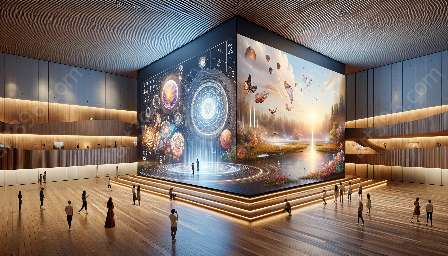Interactive design aesthetics play a crucial role in establishing emotional connections with users. By understanding the significance of aesthetics, designers can create more engaging and impactful digital experiences.
The Influence of Aesthetics in Interactive Design
Aesthetics in interactive design encompasses the visual and interactive elements that contribute to the overall look and feel of digital products and interfaces. These aesthetics go beyond mere visual appeal and extend to the emotional impact they have on users.
When users interact with digital interfaces, aesthetics can evoke emotional responses, influencing their perception and overall experience. The use of color, typography, layout, imagery, and animations all contribute to the emotional impact of a design.
Understanding Emotional Connections
Emotional connections refer to the bonds formed between users and digital products or interfaces. These connections can evoke feelings of joy, trust, excitement, or even nostalgia. Aesthetics play a significant role in nurturing these emotional connections.
By creating visually pleasing and emotionally resonant designs, interactive designers can establish a deeper connection with users, leading to increased engagement and user satisfaction.
The Significance of Emotional Connections
Emotional connections are crucial in interactive design as they directly influence user behavior and decision-making. When users feel emotionally connected to a digital product, they are more likely to form positive associations and remain loyal to the brand or platform.
Additionally, emotional connections can foster a sense of belonging and empathy, making users feel understood and valued. This, in turn, can lead to enhanced user retention and advocacy.
Designing for Emotional Impact
To leverage emotional connections in interactive design aesthetics, designers should consider the following:
- User-Centric Approach: Centering the design process around the emotional needs and preferences of users can lead to more emotionally impactful designs.
- Storytelling through Design: Utilizing narrative elements and visual storytelling can evoke powerful emotional responses and create a memorable user experience.
- Empathetic Design: Considering the emotional state of users and designing with empathy can result in designs that resonate on a deeper level.
- Consistency in Aesthetics: Maintaining a coherent aesthetic style across digital interfaces can reinforce emotional connections and brand identity.
The Future of Emotional Design
As technology continues to advance, the role of emotional connections in interactive design aesthetics will become increasingly significant. Designers will need to harness the power of aesthetics to not only captivate users visually but also to forge lasting emotional bonds.
By prioritizing emotional connections, designers can create digital experiences that are not only visually stunning but also deeply meaningful and impactful.

